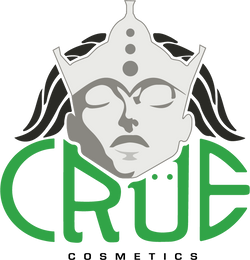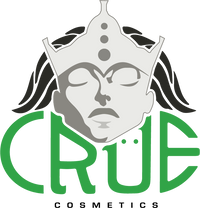
When you adopt a healthier lifestyle, you are likely to turn to natural products for your hair. The importance of protecting your locks from intense heat is well known. However, when it comes to hair coloring, most people still go for the known, chemical-laden solutions. So if you're looking for a natural hair dye, keep reading to determine if this is a good option for you.
Over 75% of women use hair dye at some point in their lives. Hair coloring involves a complex chemical reaction between several ingredients. These chemicals can be absorbed from the air during the dyeing process and you could inhale them into your lungs. The chemicals can also penetrate the hair follicles and the skin, so the compounds enter our bloodstream.
One can find thousands of ingredients in hair dyes. A common precursor is paraphenylenediamine, or PPD, which is derived from petroleum. It is used in hair dyes to give a brilliant and resistant color. Unfortunately, this chemical often triggers allergic reactions and is associated with certain birth defects. Ammonia, another common chemical found in hair dyes, is a respiratory irritant.
This is probably why more and more women are moving away from these hair coloring methods.
Even when the packaging claims to be all natural, organic or chemical free, any hair dye available in the market uses chemical actives for its effectiveness. This means that organic hair dyes simply do not exist.
The only exception is henna, a plant that contains coloring pigments that can harmlessly color hair, but have a very limited color range and unpredictable results.
For the purposes of this article, we will use the term “natural hair dyes” to refer to products that have removed very harsh chemicals from their ingredients. However, it is important to note that these products are not completely natural and always contain some level of chemicals.
That said, most so-called natural hair dyes reduce exposure to harmful chemicals that are part of almost all commercial hair dye formulas. Natural dye formulas use pigments from plants like beets, carrots and cabbage. This of course makes them softer for the hair, and therefore less brittle.
The natural dye is also easier to rinse out and leaves hair feeling thicker, stronger and shinier. If you're worried about color choice, you don't need to worry about it. From bright red to soft blonde, there's a natural dye for almost any hair color you can imagine. The big advantage is that they offer a range of colors that do not need to be faded. Check the labels carefully, if the product contains ammonia, it is not a good option. As mentioned before, ammonia is a very irritating gas that gives regular hair dyes their suffocating smell.
There are tons of natural hair dyes on the market, but don't let the name fool you, natural hair dyes always contain chemicals. In other words, if you determine that the dye is not henna and it claims to be organic or natural, it still uses synthetic ingredients to work.
On the other hand, by minimizing the chemical profile of the formulas, these products can still be considered safe for your hair and scalp, while maintaining beautiful, salon-quality results.
As it is dangerous to ingest products containing ammonia, soda or petroleum, it is advisable to stay away from formulas that contain these ingredients. Before you make the big decision to dye your hair naturally, it's important to understand some of the main causes of an adverse dye reaction and to read labels carefully.
Natural hair dyes are usually made from fruits, roots, plants, and dyes. The most popular choice among natural hair dyes is indigo. It is a purple plant that grows in the United States and Mexico. It is usually put into a solution and mixed with a few other ingredients, then applied to the hair to create a nice deep tint.
For a cool color, like chestnut, you usually need to use a clarifying formula (which removes unwanted color and dirt) to get the right shade.
Other colors require a more traditional heat application, such as dark blonde, light brown, or red. For a deep red color, for example, you'll need a clarifying formula in addition to a heat treatment to help create the vibrant color.
The first step in any natural dye process is washing your hair. You don't want any of the dye to come into contact with the protective barrier of oils on your scalp or hair, as this will lock in the color.
Once the shampoo is done, let the water flow out of your hair. Next, apply a healthy dose of all-natural hair dye to your roots, from root to tip.
If the color you have chosen is a semi-permanent dye, mix it with a little shampoo and wash after each use. If the color you have chosen is a permanent dye, you should follow the instructions on the packaging and wash off the dye if necessary.
Right now there is a wonderful movement of women around the world who are redefining beauty standards and moving away from unhealthy beauty choices. Choosing to color your hair is an option, but it is no longer an obligation. Indeed, we see more and more influential women letting their gray locks grow out with pride. If that's not the look you're going for, there's nothing wrong with that either. We hope the information presented in today's post will help you make better hair dye decisions, and which chemicals you absolutely need to avoid.





